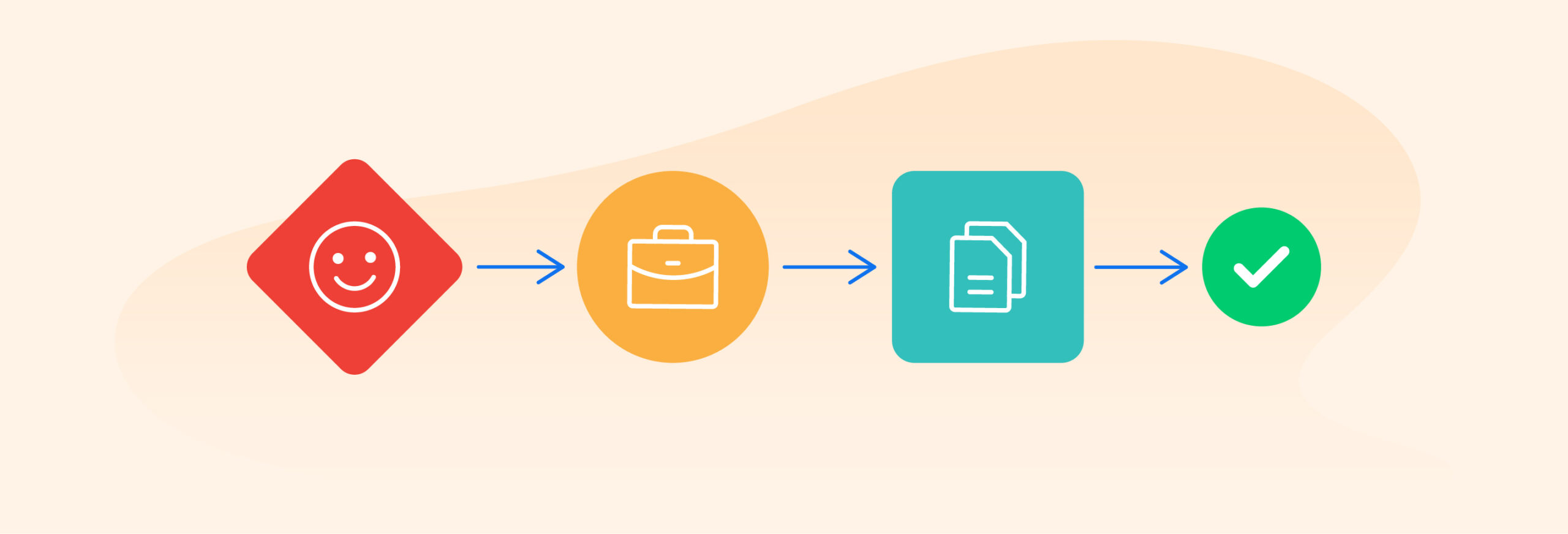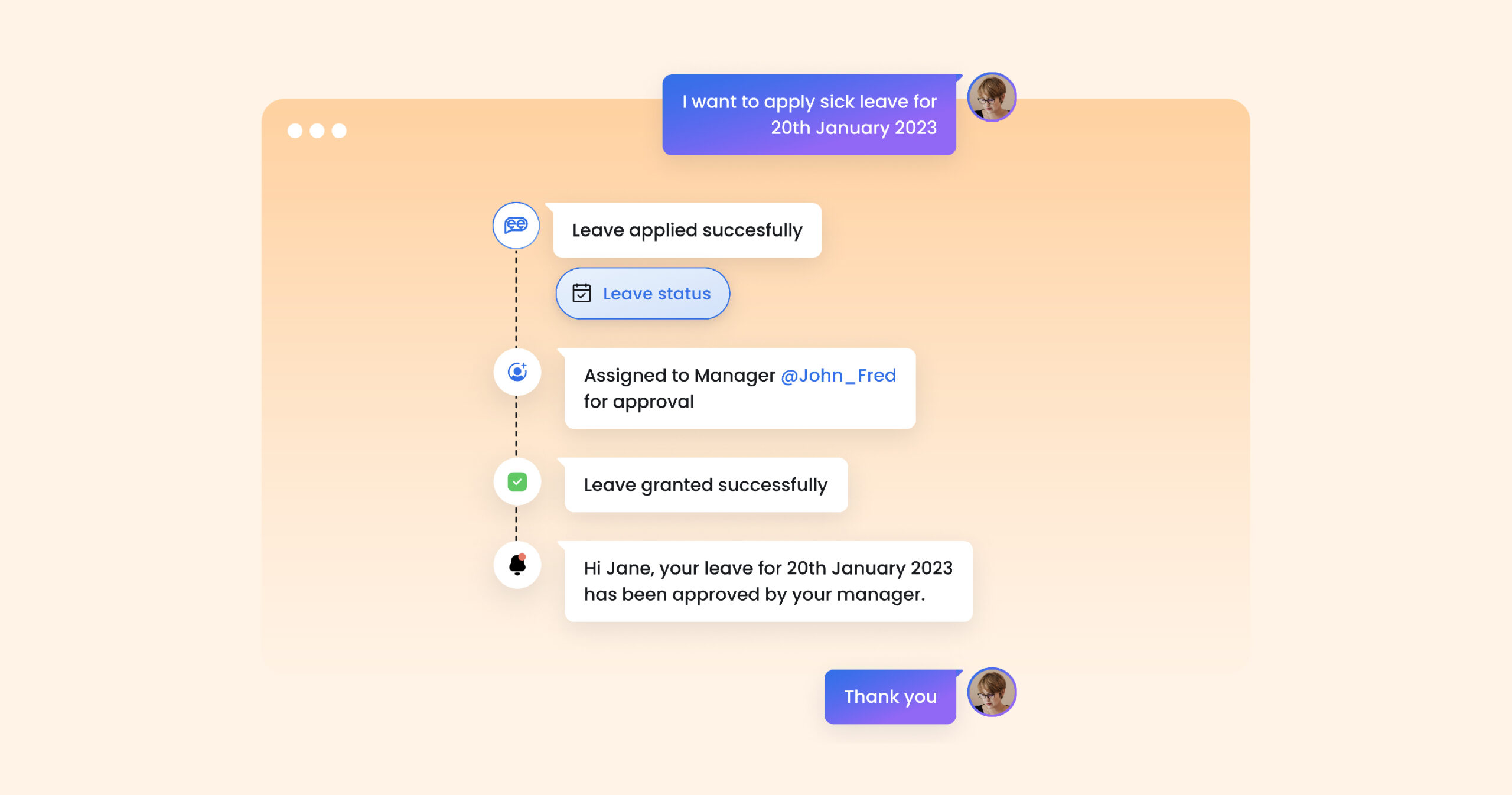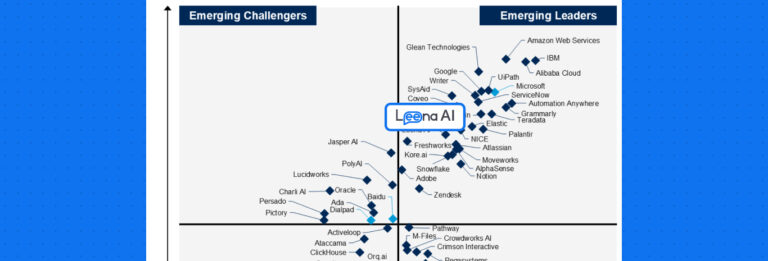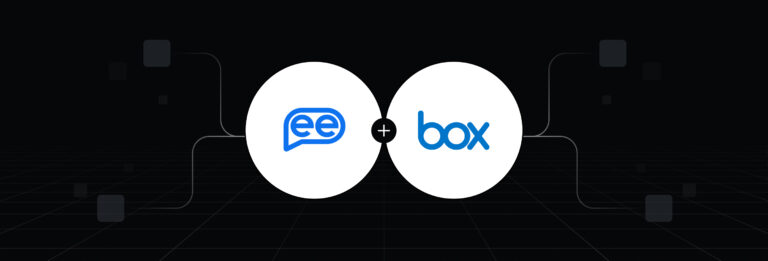Staying au courant with the latest market trends is not enough to achieve success today. Organizations should focus on employee experience also to keep their employees satisfied and engaged at the workplace.
Great employee experience can boost productivity, increase retention, and bring high returns on investment.
However, HRs often feel bogged down with repetitive administrative tasks and, as a result, do not get time to focus on enhancing the employee experience.
HR workflow automation can solve this from the root and improve efficiency in HR operations. It can help HRs perform better with resources and tools that are comprehensive, relevant, effective, and engaging.
Deep dive into this article to explore how HR workflow automation can benefit your organization and empower your employees.
What are HR workflows?

The HR workflow is the set of predictable, repetitive, yet necessary tasks within any company. For example, onboarding involves paperwork that every new hire needs to complete. As these tasks are repetitive, the steps within the process can be predefined before any workflow begins.
The purpose of HR process workflows is to handle an unlimited number of items going through them. Each has its own approval rules, defined tasks, and process alerts. Management of HR workflow brings efficiency to the processes and ensures total security, compliance, and privacy.
Why should you automate HR workflows?
Here are a few benefits of automating HR workflows:
1. Frees HRs from administrative tasks
With manual processing, HR employees spend a significant part of their day navigating through repetitive processes or waiting for a resource to free up. Given this, they do not get enough time to bond with their colleagues or craft strategies that boost employee experience.
However, implementing automation in HR workflows speeds things up and helps them complete tasks efficiently. This reduces their workload and saves time, which they can invest in brainstorming sessions, strategic HR planning, and collaborating with colleagues. Employees develop meaningful relationships, experience a sense of belonging, and improve retention.
2. Helps in achieving up to 400% ROI
According to a study by VentureBeat, companies can have as much as 400% return on investment with HR automation workflows.
For example, tech firm Bosch saved half a million dollars annually after bringing automation into their supplier network management workflows.
VentureBeat also cites that many insurance companies are leveraging automated client quotation workflow where auto-generated proposals give prospective clients a side-by-side comparison of different providers.
3. Ensures better accountability, transparency, and process improvement
HR workflow automation enables HRs to track, collect, and analyze data in real-time and leverage the insights. The findings help management bring improvements to their HR strategy.
The data also help examine employee performance, spot weak areas and administer upskilling accordingly. Automation clearly outlines the deliverables and helps managers track task progress, improving transparency and visibility for all stakeholders.
4. Better data processing
Human resources workflow automation fosters quick, real-time, and better data processing, generating precise reports that help in bringing substantial and compelling change.
5. Reduces chances of errors
Manual HR processes are inefficient and prone to human errors. They can compromise compliance, privacy, and the company’s entire workflow. Without the implementation of technology, these mistakes are difficult to anticipate. But with automated HR workflow automation software, HRs can streamline operations and process large data sets quickly and accurately.
6. Ensures cost-effectiveness
Inaccuracies in documentation, compliance forms, and other HR operations can cost companies significantly. HR workflow automation systems ensure precision and reduce such expenditure. It also improves employee engagement and reduces turnover, avoiding attrition-related costs for the company.
Companies can invest a small sum in implementing automation software as many HR tools allow pay-per-use and customization within a stipulated budget. You can only opt for tools that you find necessary for your business.
7. Brings consistency
Employees often fail to maintain consistency in workflow due to unclear instructions and manual processing involved in traditional HR administration. You can provide your employees with defined rules, expectations, sequences, and checklists for each task through HR workflow software. Every employee will have instructions to complete a specific task to avoid miscommunication. This way, workflow remains consistent throughout the organization. HR automation tools also identify and exclude identical processes and variable outputs.
8. Drives efficiency
HR workflow software provides everything an HR employee needs to be productive with a predefined task sequence and audit trail, clear instructions, fewer mistakes, and quick task completion and resolution. When they don’t have to deal with mundane administrative tasks, they can focus on being creative and innovative with their jobs. The automation system also facilitates seamless inter-departmental collaboration and lowers the workload.
Moreover, the data-driven analytics reports help identify bottlenecks and inefficiencies, allowing the companies to bring improvements.
What to look for in HR automation software?
Pre-built workflows
HR automation software is effective yet new concept in many industries. To give you a foundation in the initial implementation, your chosen HR automation should have some pre-built workflows. It will help you familiarize yourself with the system and will be a configurable form to capture required data from employees and managers at the primary stages.
Customization
Every company has different business needs. Thus, their HR workflow automation requirements will also be unique. Customization features in an HR tool simplify the mapping of current demands and processes of the organization, making the solution result-oriented and efficient.
Flexibility
The business world is unpredictable, and external conditions constantly change and impact companies. So, flexibility is a prerequisite for a proper HR strategy so businesses can quickly adapt to the dynamic corporate landscape. Therefore, the workflow software should be flexible to accommodate your growing HR needs as you scale.
Easy and wide range of integrations
HRs tend to use multiple platforms and software for individual purposes.
For instance, if they want to check an employee’s medical insurance details and process it, they will have to open an insurance policy first to check details and then another platform to let employees avail it. This navigation to multiple platforms becomes chaotic for HRs and hampers their efficiency.
However, if the HR workflow automation software is integrated with third-party software, they don’t need to traverse multiple platforms. Everything can be accomplished on a single platform, eventually increasing their productivity manifolds.
User friendly
Implementing automation aims to simplify your workforce’s job and help them be more productive. But if the system is complicated and does not provide enough comprehensive guidelines, it will only make the HR department’s job harder. Make sure you opt for an intuitive and easy-to-navigate solution. A user-friendly HR system will reflect that you value your employees’ time and intend to support them as best you can.
24X7 support
As discussed before, the integration of automation is a relatively new concept in many companies. So naturally, there will be times when you need technical support. Hence, look into their customer support before choosing a provider for your company.
Your chosen software brand must provide 24X7 support service to attend to and address any issues related to the HR software. Don’t hesitate to ask questions. Find out if you would have to wait for their call back after reporting a problem or do they provide instant resolutions. This will help you sort out a vendor that prioritizes after-sales customer support.
Data management and analytics tools
One of the most vital features of HR workflow software is to get comprehensive insights into the employees’ pain points and their experience in the company. You should leverage AI-powered HR workflow automation software to automate different HR processes and get insights into these processes through an analytics dashboard.
Your automation solution should also have features to accurately process large data sets and provide real-time, actionable insights for improvements.
Consider asking critical questions to ensure an HR solution has all the above qualities.
- Ask about their existing HRMS tools and how they will help you maximize the ROI
- Explore how customizable their tools are and how they plan to support your queries
- Discuss the estimated time to train your employees and ask about their subscription plans.
- Don’t forget to compare with alternatives before choosing
Conclusion

Deploying an AI-powered HR workflow automation software can ensure great employee experience and help HRs transition from transactional to strategic roles.
Given its use cases across different processes in the HR landscape, organizations must employ it for their employees, right from preboarding to onboarding and offboarding.
Leena AI’s HR workflow automation software gives HRs the flexibility to tweak the workflows as per their requirements and integrate the software with any third-party software they want. Additionally, its robust analytics dashboard provides HR leaders the visibility into employees’ needs, the areas for improvement, and much more in real-time.
If you want to automate your HR processes, you can book a demo with our experts today to experience the industry’s best HR workflow automation software.






